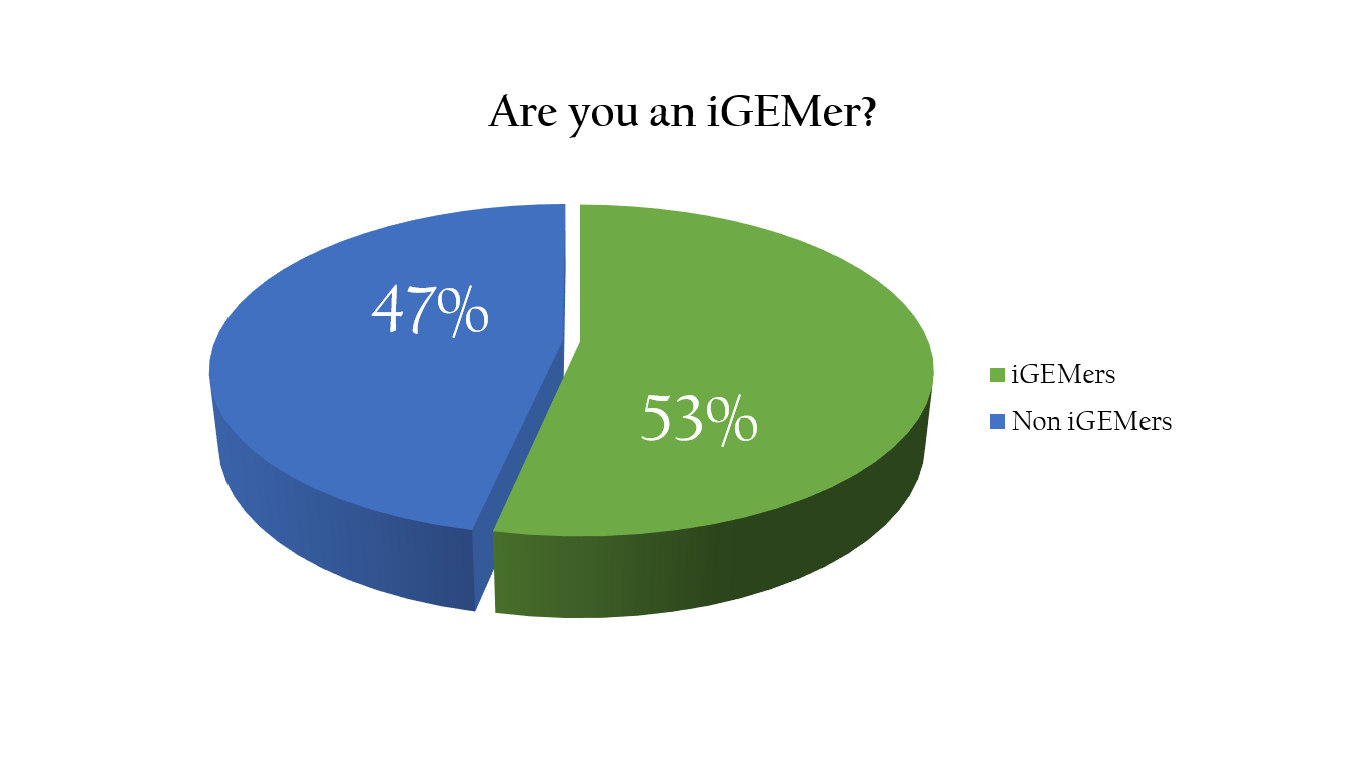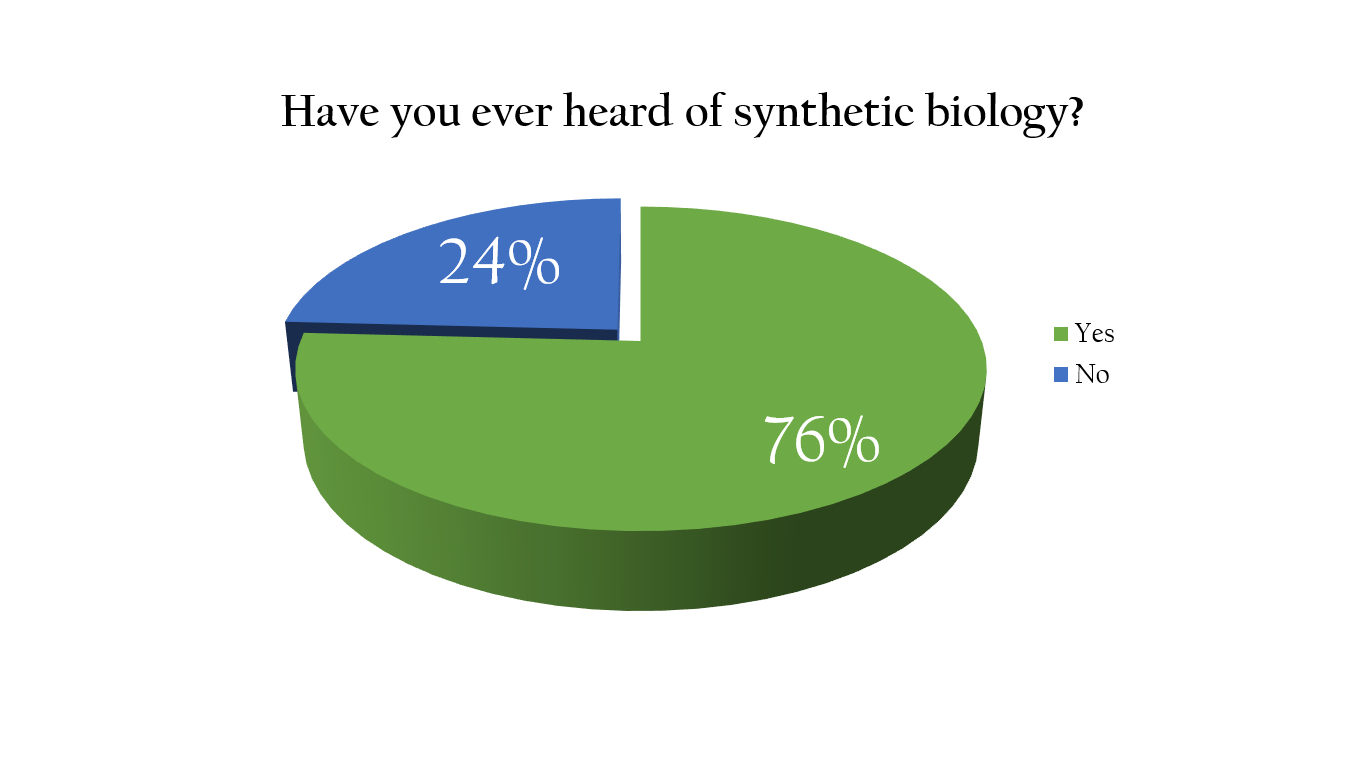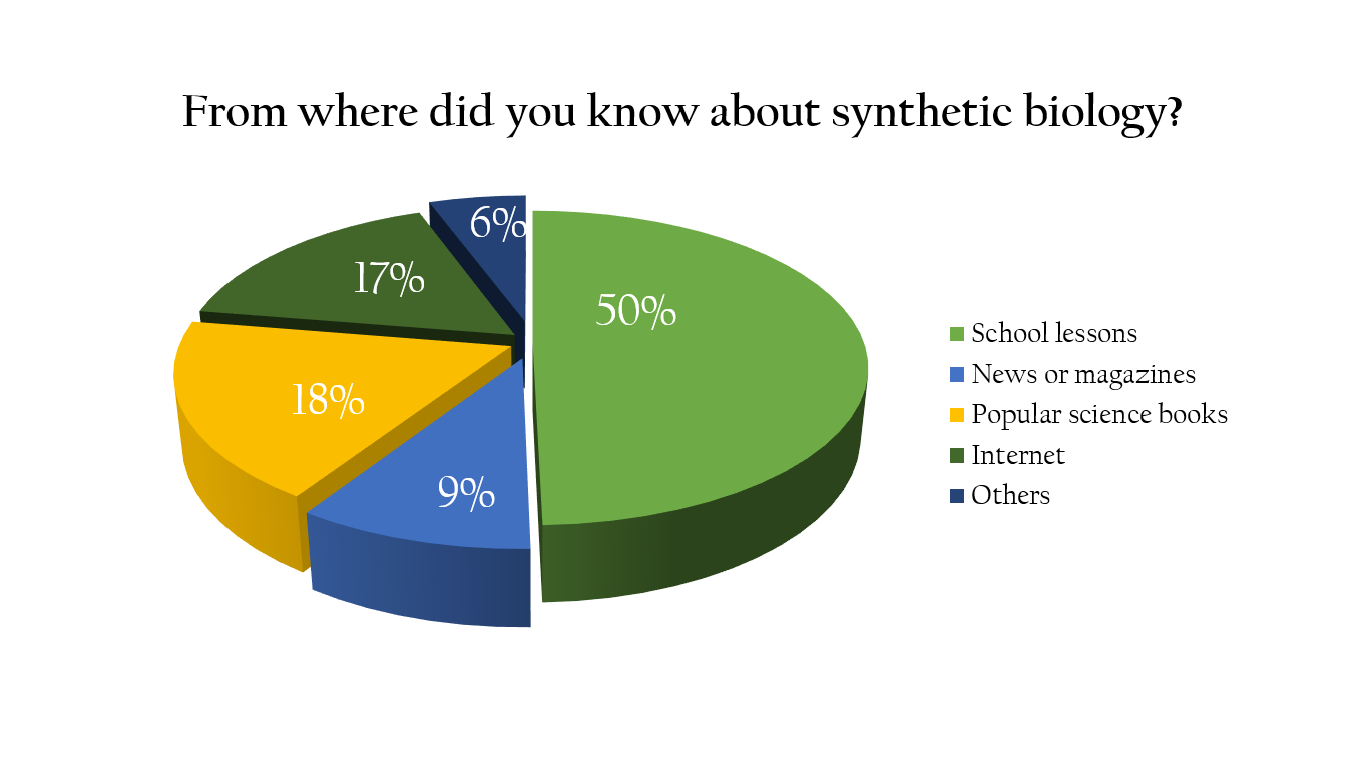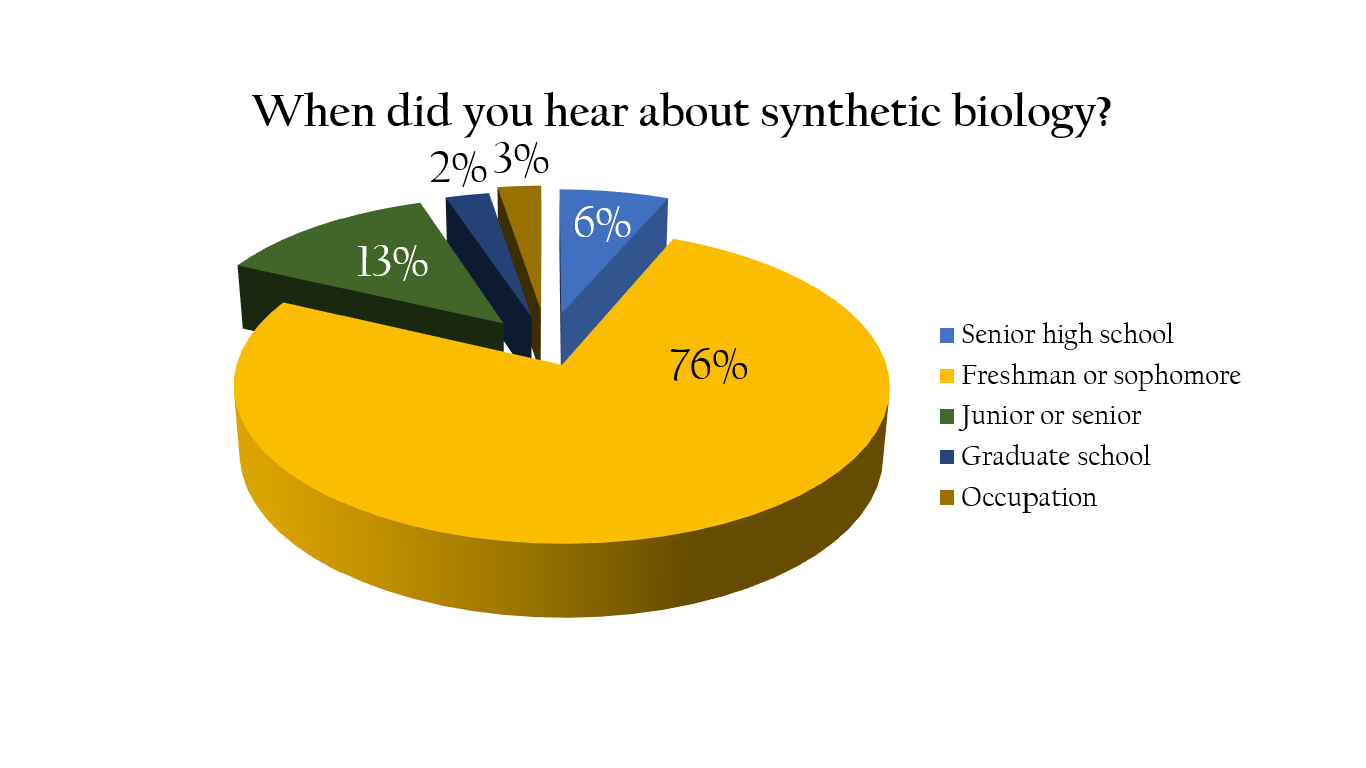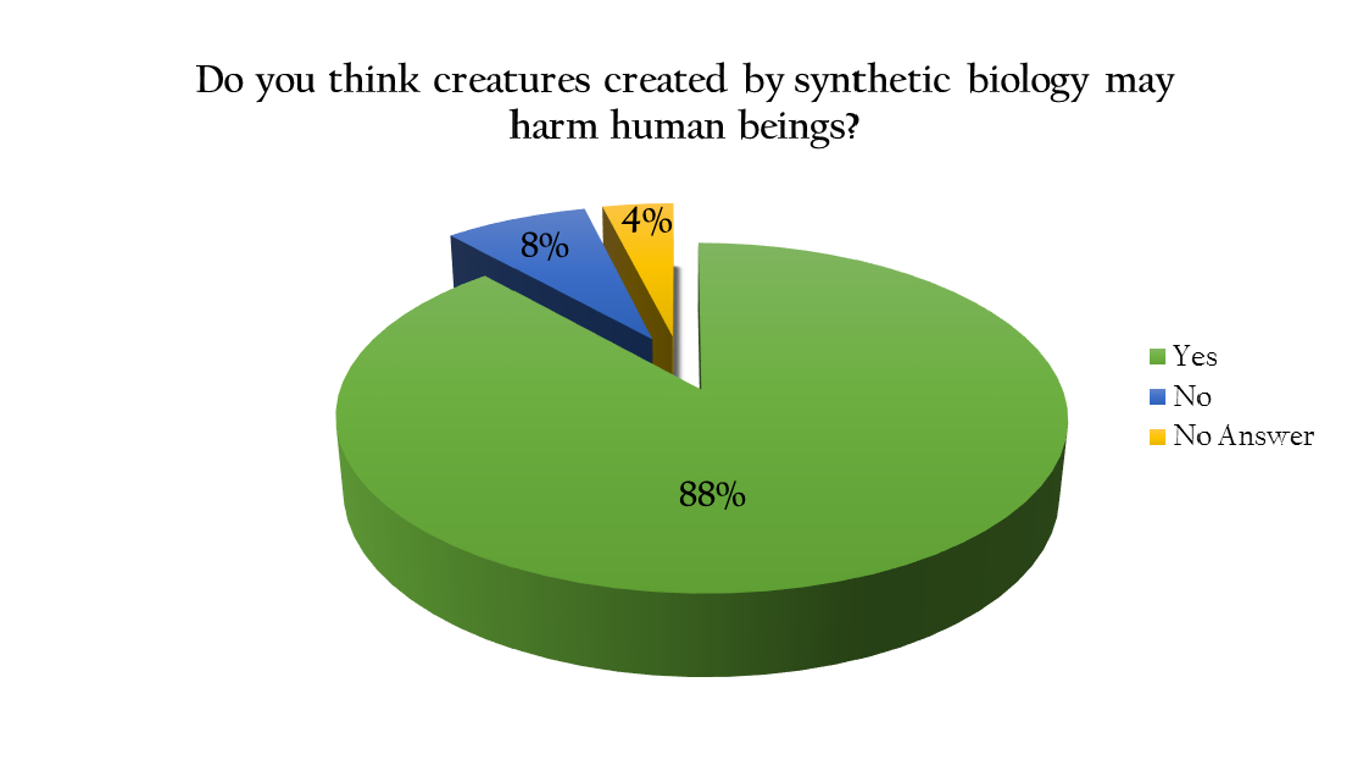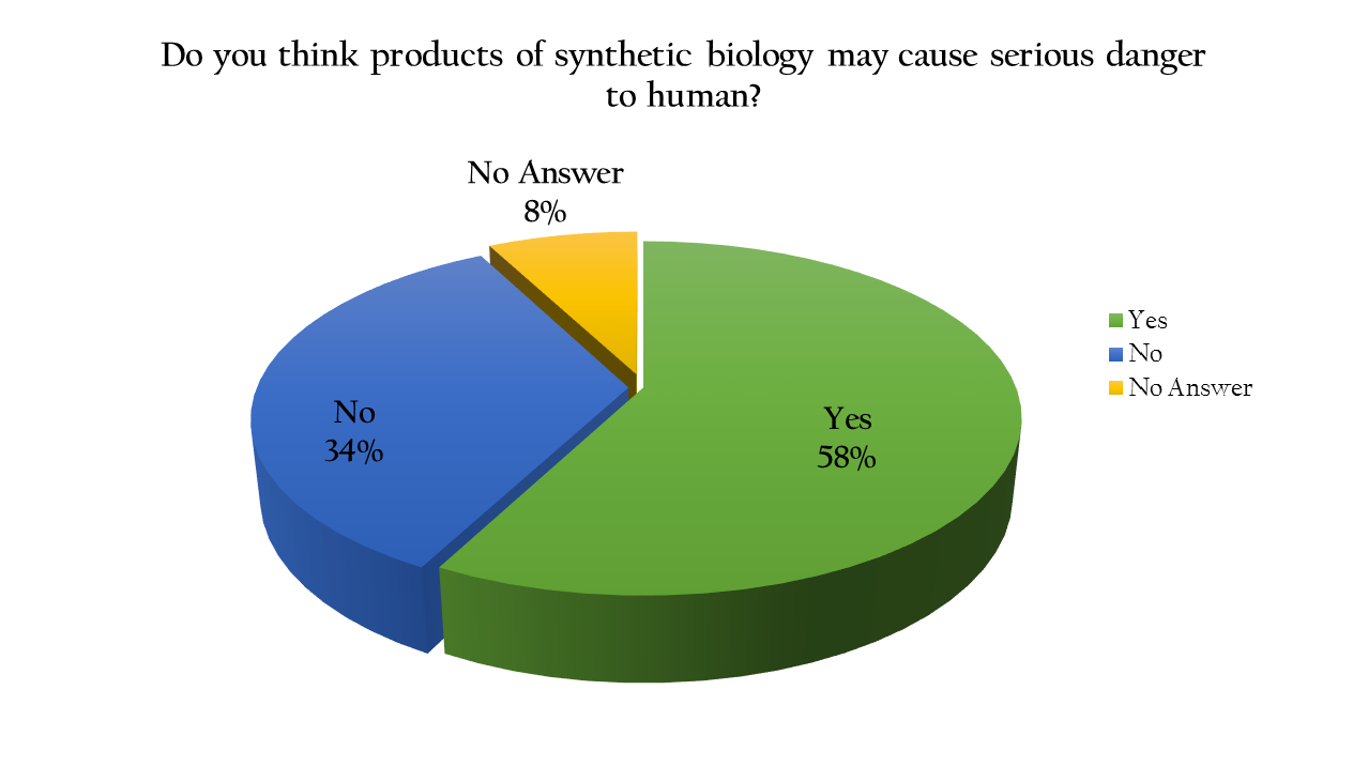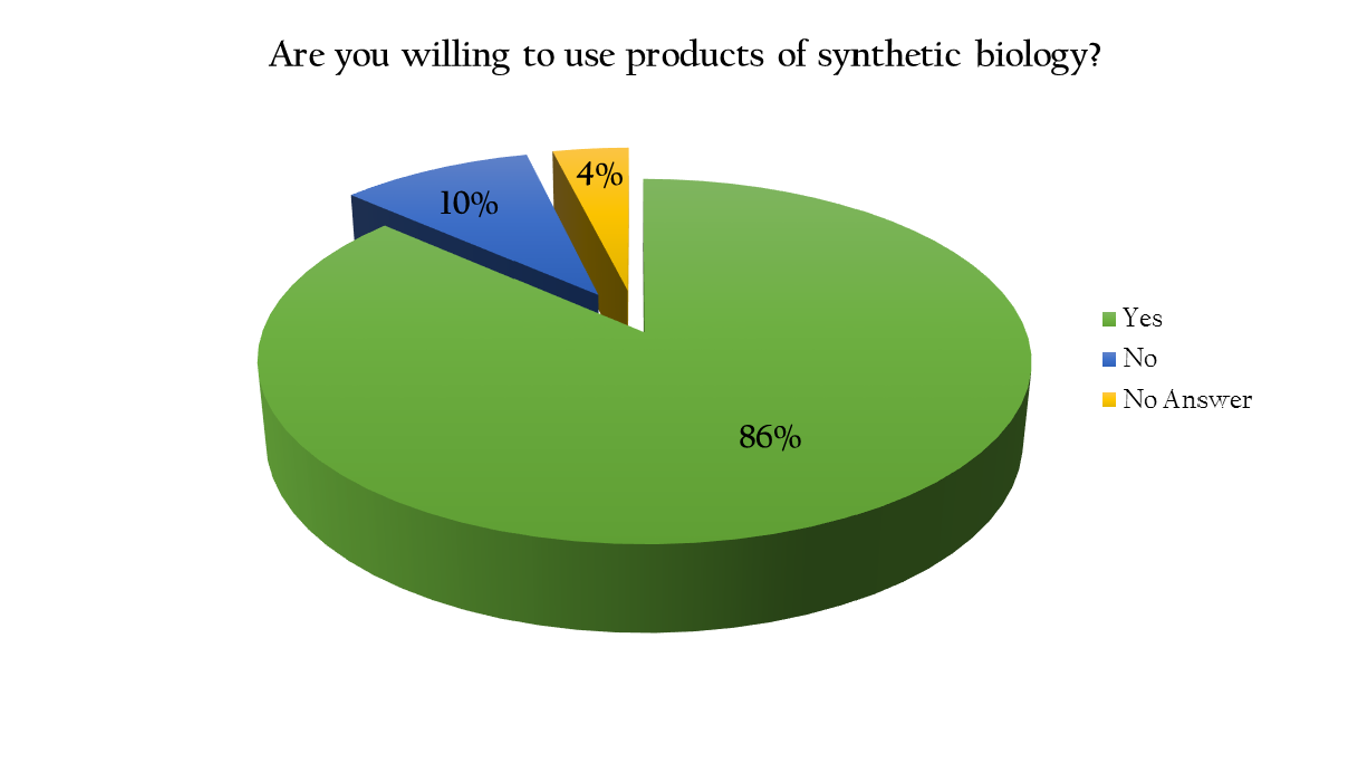Team:NCTU Formosa/human practice
From 2013.igem.org
Surveys
View the Traditional Chinese Version File
Few weeks ago, we did a survey on public and inquired their degree of comprehension about synthetic biology. We collected the data and made the diagrams below. We offered these questions to the participants of our iGEM conference and required them to hand back the questionnaire. Through the results, we can roughly find out how much they understand about synthetic biology. Furthermore, we also offered the surveys to public in order to get more information of those who are not iGEMers.
The pie chart clearly show that the participant in our survey is consisted of almost half iGEMers and half non iGEMers.
Compared to the first image, we think that iGEMers must have heard about synthetic biology. So we can know that half of non iGEMers have ever heard of synthetic biology . Meaning that , we have successfully convey the concepts of synthetic biology. Still, we have a lot of progressing space to promote biology related knowledge.
According to the image, it is prominent that half of the participants knew about synthetic biology from school, and with certain percentages, from popular science books and Internet. We can find out that in spite of schools, public media also plays an important role in spreading synthetic biology. But people from school are a lot more aware of it. With that said, we can spread the concepts of synthetic biology through more different measures in the future .
From the image, we got that most participants heard about synthetic biology in freshman and sophomore during college career. Surprisingly, no people have heard of it during junior high and fewer during senior high. As a result, we may focus on the younger generation to spread the idea of synthetic biology in the future.
The pie chart clearly show that almost every participants in the survey do know we are able to regulate multiple gene by synthetic biology techniques.
Interestingly, there is a great percentage of participants thinks that creatures created by synthetic biology is harmful to human. While only 8% of all participants consider it not dangerous.
From the image, we can also observe a similar result that over half of the participants think products of synthetic biology is dangerous to human.
</div></div>
 "
"
